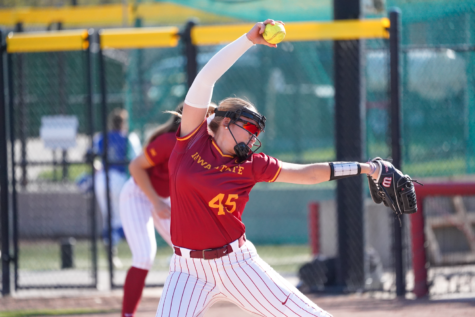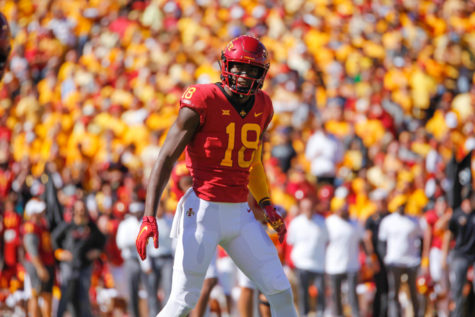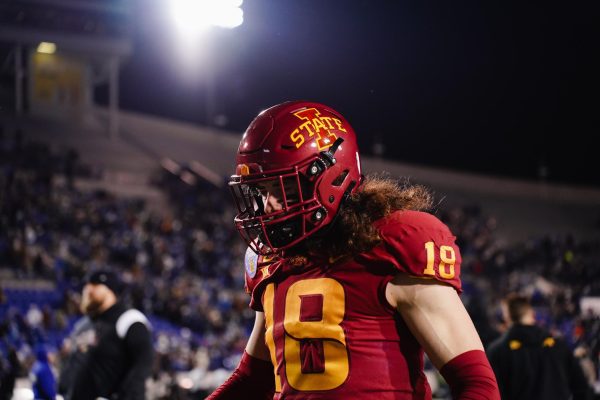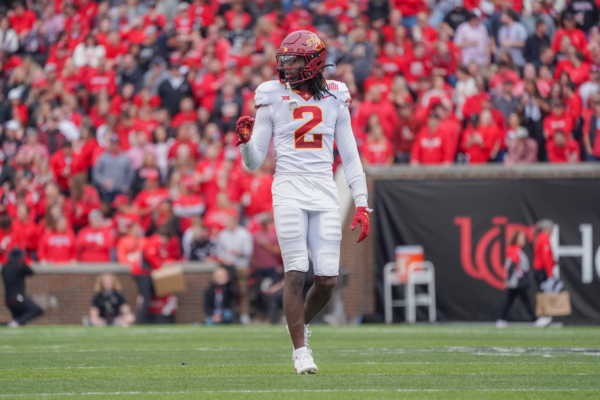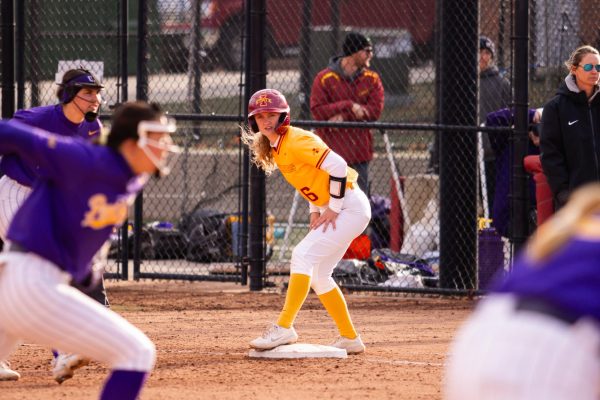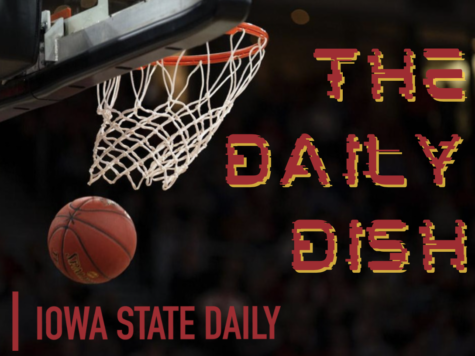ISU athletics steer clear of rules violations
December 17, 2001
Iowa State’s athletic coaches have been successful in maintaining a respectable win-loss record, but that’s not all they do.
They also keep the Cyclones out of the athletic doghouse.
Several major universities around the country haven’t been as fortunate in staying in compliance with the National Collegiate Athletic Association.
This season, DeShaun Foster’s football career at UCLA came to an end due to a violation of NCAA rules. Foster, a star running back for the Bruins, reportedly drove a booster’s new sport-utility vehicle for several weeks.
This type of behavior is termed as an “extra benefits violation,” according to the ISU Athletics Booster Guidebook to NCAA Regulations.
Closer to home, the University of Minnesota was engaged in a disastrous academic scandal in 1999 and 2000. Over a five-year period, a tutor wrote papers for at least 18 Gopher basketball players.
The NCAA called the violations the worst academic scandal to hit a college athletic program in 20 years. Minnesota was placed on a four-year probation and lost five men’s basketball scholarships.
Even Iowa State’s Independence Bowl opponent, Alabama, is facing an NCAA investigation. The university has already decided to cut 15 football scholarships over the next three years following accusations of 11 major rule violations and five minor ones, according to www.espn.com.
So what keeps Iowa State out of trouble?
The Cyclones have avoided problems “because of the coaches,” men’s basketball coach Larry Eustachy said. “You talk about Johnny Orr, Tim Floyd, Dan McCarney – very high, high integrity.”
Iowa State’s Director of Compliance, Bill Smith, agrees.
“Good rules compliance begins in the hiring process,” Smith said. “The coaches play a very active role in supporting our educational initiatives and making sure that their athletes are aware of what is permissible and what is not permissible.”
Eustachy said he and his staff are constantly making sure that their athletes know right from wrong – an effort that never ceases. Eustachy even went so far as to say, for example, that if a basketball player is dropped off in an unfamiliar car, the coaches may ask whose vehicle it is.
Smith, who is responsible for overseeing the entire athletic compliance program, said his department also plays a key role in keeping Iowa State clean.
The compliance program is responsible for education, interpretation, monitoring and compliance with three sets of rules and regulations: NCAA, Big 12 and Iowa State. If a student-athlete is confused about what a rule might include, his education and interpretation coordinator will clear it up, Smith said.
Smith’s department is also a major figure in investigating possible rule violations. He said he would launch an investigation if an allegation were made to his office or if he found “information that would lead [him] to believe that that possibly occurred.”
“That would include interviewing the booster, interviewing the student athlete, doing those kinds of things,” Smith said.
Smith admitted that he has been a part of investigations at Iowa State, but could not expand on the matters due to confidentiality laws. He did say, however, that he hasn’t run into problems during his time at Iowa State.
Last June, an ISU sports team was under investigation by the Athletic Department regarding a claim of Internet gambling. The Des Moines Register reported that Bo Carter, the Big 12 Conference’s Media Relations Director, had named the ISU men’s golf team as the target of the investigation.
Carter later said that the Big 12 would not release the identity of the team. Smith declined to comment about the situation, but stressed that an officialannouncement has not been made as to which team was under investigation at that time and no names have been released. He did say that it was a non-revenue sport involved.
The rigor of the compliance program at Iowa State is representative of the Big 12 Conference, Smith said. According to www.espn.com, the Big 12 Conference leads the nation in football programs cited for major violations since 1987. However, half of the eight violations were by Texas, Texas A&M and Texas Tech while they were still a part of the Southwestern Conference.
Smith said the past is no reflection on what is currently occurring in those programs.
“I know my colleagues at those institutions have a lot of integrity,” he said. “I’m very confident that the Big 12 is a leader across the country as far as their compliance programs are concerned.”
As it is stated in the ISU Athletics Booster Guidebook to NCAA Regulations, “Strict adherence to University, Conference, and NCAA rules . are critical to the successful performance of the Athletic Department’s Mission.” The 16-page pamphlet refers to prohibited contact with potential recruits 10 times.
Thomas Niland, former chairperson of the NCAA Committee on Infractions, said penalties were imposed on Iowa State in 1987 for the improper recruitment of four junior college transfer students during the spring of 1984.
The football program lost four scholarships for the 1987-88 year and was placed on a two-year probation.
The controversy centered on middle linebacker Jeff Braswell.
Members of the coaching staff reportedly arranged for housing, transportation and meals for the recruits.
The NCAA found that these actions gave Iowa State an unfair advantage in recruiting the athletes, including Braswell.
Jim Criner, the ISU football coach at the time, was subsequently fired by the university.
The report by the NCAA stressed that the penalties would have been more severe had Iowa State not “demonstrated its commitment to compliance by uncovering significant incriminating information in the case” prior to the NCAA committee hearing.
That’s one reason the compliance program at Iowa State is so important.
“We put a strong emphasis on the compliance program,” Smith said, “and have done an excellent job with it.”
Excellent, indeed. Iowa State hasn’t had a major infraction since the 1987 incident.
That’s fortunate, because every violation could result in the loss of scholarships and bans on television and post-season appearances, according to the ISU Athletics Booster Guidebook to NCAA Regulations.
Ripple effects from a violation could ruin chances of attracting recruits and result in the loss of revenue. One mistake could make a program go downhill fast, Eustachy said.
“It’s just devastating . it should be,” he said. “The penalties are well thought out by the NCAA and well-deserving. If you break the rules, you’ve got to pay the price.”
Eustachy expressed confidence that Iowa State has a strong program in place to stay away from those types of problems.
“I challenge anybody to do a better job than us,” he said. “We really, really work at it hard.”








